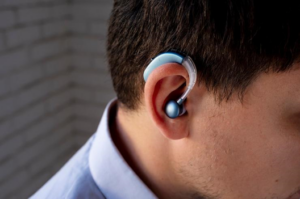
Some 20 years ago the hottest toy for kids was a robotic dog that looked like something out of a sci-fi movie. Although pretty advanced for its day, the robotic canine was anything but life-like. It didn’t last long. Fast-forward to 2019 and the landscape looks quite different. Today’s robot pets are so advanced they are garnering attention even among psychiatrists.
Some of the toughest cases for psychiatrists – be they private practice owners, hospital employees, or locum tenens clinicians – are those dealing with dementia-related diseases. The problems such diseases create are very real. Yet there are few solutions. More often than not, the best doctors can do is advise on how to make patients more comfortable while the disease takes its course.
Now, a new therapy involving robot pets is beginning to emerge. Psychiatrists are coming to learn that dementia patients can experience many of the same psychological and emotional benefits that come with real animals when introduced to robot pets. Robots are obviously not real, but they do make a difference.
Little Care and Fewer Resources
Unlike a real animal, a robot pet needs minimal care. Patient caretakers need only make sure batteries are charged and dirty robots cleaned. Other than that, robot pets are care-free. They do not necessarily even need attention. A robot will not feel neglected on those days when the patient wants nothing to do with it.
Robot pets also consume fewer resources. They are not eating food or drinking water. They do not need shots and there are no visits to the vet. A robotic cat or dog represents a one-time investment that offers value for as long as it is needed.
No Harm to Animals
Psychiatrists tend to appreciate that dementia patients cannot harm robot pets the way they can real animals. This is a big plus for patients and caretakers, too. Caretakers don’t have to worry about harm to real animals while patients do not have to live with the guilt of accidentally harming an animal during an uncontrolled fit of rage.
Being a Better Neighbor
Patients living in assisted living facilities may not be able to have real animals in their rooms because of facility policies meant to protect other patients. Let’s face it, not everyone appreciates having cats and dogs around. But with robot pets, dementia patients can have the next best thing without bothering their neighbors and co-residents.
Other residents who enjoy pets can benefit when the patient brings his cat or dog out into public spaces. Those who don’t like pets don’t have to be bothered. A robot cat or dog is not going to wander uninvited up and expect to be petted.
The Research is Solid
It should be noted that using pet robots is not a gimmick. The science is solid when you compare the benefits of pet robots against those of real animals. As long as the robots are lifelike in their animatronic behaviors, studies show they offer the same kinds of benefits real animals offer.
For example, one study cited by the American Psychiatric Association found that dementia patients are less likely to be lonely with a robot pet. They are more likely to have less stress and anxiety as well, leading to fewer psychoactive episodes.
It may be hard to imagine patients driving any benefit from robotic animals. But the robots really do help, especially among dementia patients. It’s no wonder psychiatrists are warming up to them in greater numbers. A robot pet is a cost-effective and easy way to help dementia patients enjoy a better quality of life.



